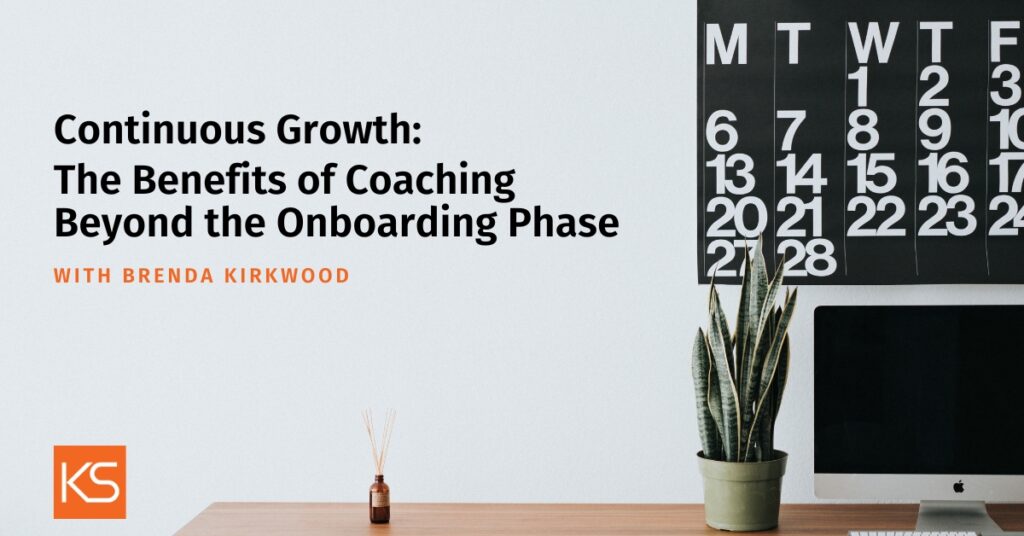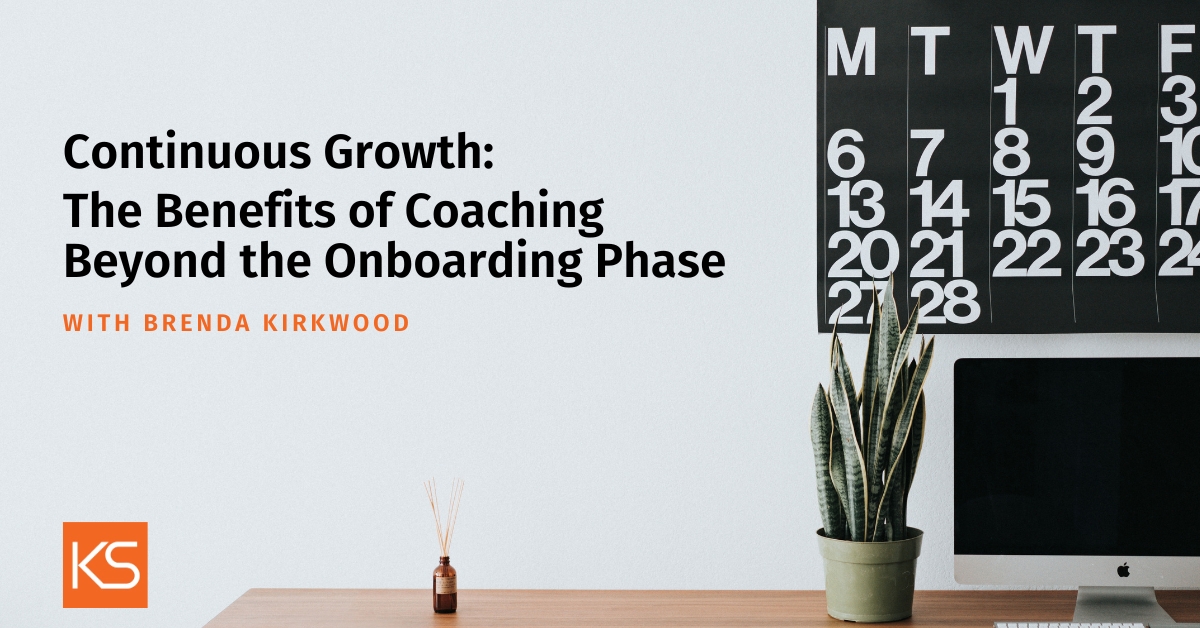Continuous Growth: The Benefits of Coaching Beyond the Onboarding Phase

In the fast-paced and ever-evolving landscape of the professional world, the value of coaching extends far beyond the initial onboarding and integration phase. While integration coaching is traditionally associated with helping new employees acclimate to their roles, its benefits can significantly impact individuals at all levels of an organization, fostering continuous growth and development.
Adaptability in a Dynamic Environment
In today’s dynamic business environment, change is the only constant. Coaching beyond the onboarding phase equips employees with the skills and mindset needed to adapt swiftly to new challenges. As they progress in their careers, individuals encounter various hurdles that require a nuanced approach. Continuous coaching provides a platform for addressing these challenges and developing the adaptability crucial for sustained success.
According to a GM in a non-profit organization, having the coaching was important in “getting on the same page as to goals, direction, approach, strategy, etc from the start and then adjusting as needed.”
Leadership Development
Effective leadership is a journey, not a destination. Beyond the initial stages of leadership training, ongoing coaching is pivotal in refining leadership skills. Leaders are given a dedicated space to reflect on their strategies, receive constructive feedback, and hone their abilities to inspire and guide their teams. This approach ensures that leaders are well-prepared for challenges in their roles and drive positive organizational change.
Enhanced Problem-Solving Skills
Coaching sessions create an environment where individuals can explore various problem-solving techniques and receive guidance on optimizing their approaches. This continual focus on problem-solving fosters a culture of innovation and creativity within the organization. Employees become adept at navigating challenges, finding innovative solutions, and contributing positively to the company’s success.
According to a Product Marketing Manager at ORBCOMM, “having clear objectives for each meeting, openness to listen and discuss a different point of view, willingness to help resolve outstanding questions and overcome potential road blockers that are critical for good performance.”
Strengthening Emotional Intelligence
Emotional intelligence is a critical component of professional success. Coaching goes beyond teaching basic interpersonal skills; it dives into emotional intelligence, helping individuals understand and manage their emotions effectively. As employees progress in their careers, honing emotional intelligence becomes instrumental in building strong, collaborative relationships and fostering a positive work environment.
Ingrid Gingras, VP, Communications and Donor Experience at The Royal Ottawa Foundation, reflects on her experience: “Great questions being asked of me and forced me to really reflect…how I would approach things, how I could ensure I did what I thought was best, what my next steps were.”
Employee Engagement and Retention
Coaching programs contribute significantly to employee engagement and retention. When employees feel supported and valued through continuous coaching, they are more likely to remain committed to their roles and the organization. The ongoing development opportunities presented through coaching also demonstrate an organization’s investment in its employees, creating a positive and motivating workplace culture.
Jenna MacLeod, General Manager – Sensplex, Capital Sports Management Inc., emphasizes the importance of understanding clients’ needs: “Keynote takes the time to truly understand their clients’ needs. When I first spoke to Keynote about the role, it felt like I was talking to the employer… the insight into the company and role itself was impressive. Keynote is an incredible matchmaker!”
Improved Communication Skills
Effective communication is the cornerstone of successful collaboration and teamwork. Coaching beyond the initial phases allows individuals to continually refine their communication skills. This includes not only expressing ideas clearly but also actively listening and understanding diverse perspectives. Improved communication fosters a culture of openness, collaboration, and mutual understanding within the workplace.
Jacqueline Belsito, President of the Ottawa Senators Community Foundation, acknowledges a focused and organized approach to the transition: “Focused, thoughtful and organized approach to the transition. Excellent at establishing trust, good at keeping the conversation focused.”
Final Thoughts
While onboarding coaching is crucial for setting the stage, extending coaching beyond the initial phases is an investment in the long-term success of both individuals and the organization. The benefits encompass adaptability, leadership development, enhanced problem-solving skills, strengthened emotional intelligence, improved employee engagement, and refined communication abilities. In a world where change is constant and growth is paramount, continuous coaching serves as the support structure that enables individuals to realize their maximum capabilities and make significant contributions to the organization’s success.
Author: Brenda Kirkwood, VP of Post-Placement Integration, Keynote Search

